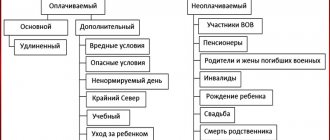Author of the article: Elena Petrenko Last modified: January 2021 9549
Collection of alimony is possible both during marriage and after its dissolution. Often, at first, women do not claim money from the fathers of their children, but then still file claims in court. If your ex-wife has filed for alimony, you will most likely have to pay, but there are a number of exceptional cases in which the amount of payments may be reduced or the court decision may be cancelled.
Wife filed for alimony
Even if a lot of time has passed since the divorce, a man may be faced with a situation where his ex-wife has filed for alimony.
What should you do to protect your interests? Figure it out! And our family law lawyers, experienced professionals in their field, will help you with this. Content:
- Ex-wife filed for child support
- Pregnant ex-wife filed for alimony
- The common-law wife filed for alimony
- If the wife filed for spousal support
- What to do if the wife filed for alimony for herself?
- The concept of need
- Summarizing
How to prepare objections, counterclaims, claims for reduction of payments?
First, you need to find a sample application. It can be:
- download on the Internet;
- meet at the court reception.
It is better to contact a lawyer in civil matters, or better yet, in family matters, so that he can competently prepare the document. Done by a professional is a guarantee of no problems.
Please note that objections are drawn up in free form. The main thing is to indicate in the text:
- what the defendant does not agree with;
- which he agrees with.
It is also necessary to emphasize those points that prove the defendant’s position. The most advantageous position is occupied by the defendant who filed a counterclaim. If, of course, his demands are justified. He becomes a plaintiff in the case, without ceasing to be a defendant, naturally.
The law imposes the same requirements on a counterclaim as on any other claim. They are contained in the Code of Civil Procedure of the Russian Federation.
In particular, the counterclaim must contain the following information:
- about the court to which he is sent;
- about the parties;
- about the substance of the dispute;
- on the rules of law governing legal relations;
- about the applicant's requirements.
The document must be accompanied by copies of all papers that serve as evidence and a receipt for payment of the state duty.
Ex-wife filed for child support
This situation occurs most often. A woman has every right to demand that a man participate in providing for their common child. She cannot go to court only if paternity has been successfully challenged (then issues of maintenance will concern the biological parent), and also if a child support agreement has been concluded. In the latter case, the agreement is a self-sufficient official document in nature, on the basis of which bailiffs can forcibly collect the debt if the man refuses to transfer the agreed amount.
In all other cases, a woman has the right to apply for alimony and get it paid. A man can only challenge paternity if he is sure that the child is not his. Or insist on reducing the amount of support if there are good reasons for this: illness, the presence of other dependents, problems with employment, etc.
Online database
There is another simple and quick way to confirm information about alimony payments. There is an online database of enforcement proceedings on the Internet, which is posted on the website of the Federal Bailiff Service. It’s very easy to find it through a search engine, but the main thing is to get to the official website with reliable information. There, according to the personal data of the payer, you can find your last name or your wife’s data in the list of people who filed claims.
This is a relatively simple method; it can be done quickly without leaving your place of work or home. Both of the above methods are applicable for all cases, but only if the payer did not communicate with the bailiffs or was not personally provided with the document.
Pregnant ex-wife filed for alimony
By law, a pregnant woman can demand full maintenance from the father of her child. A man in such a situation has the right to insist on a DNA test (it is done from 9 weeks, and the procedure is safe for the baby). But if it is established that the child is his, then he will have to take care of the maintenance of his mother throughout the entire period of pregnancy and during maternity leave.
As a rule, payments are assigned in a fixed amount. In this case, the court usually proceeds from the sufficiency of such funds, that is, how much a woman needs to cover expenses for herself and the child. There are no exact figures in the legislation, but the standard reference is to the subsistence level of a particular region.
How much child support should an unemployed father pay?
The concept of an officially unemployed father is quite vague. This interpretation may have several variations in life. Let's look at each separately.
If you have official unemployed status
An officially unemployed person is a person who has declared his status and is registered with the employment center. Accordingly, he receives state benefits on a temporary basis while he is unemployed. The amount of alimony payments will be based on the income actually received, in the form of unemployment benefits. Typically, the state assigns assistance based on the amount of salary from the payer’s previous place of work and the average income in a given region. Considering the size of benefits in Russia, it cannot be said that the child’s mother will be able to count on a larger amount.
If you don’t work and don’t contact the employment center
Provided that the alimony payer not only does not have a job, but is also not officially listed as unemployed, that is, there is no information about his actual income, then to calculate the amount of alimony payments, we will take the average salary in the region where the child lives or the average amount of his previous earnings.
If you are an unemployed disabled person or a pensioner
If the father does not work because he is disabled or retired, then his main income will be considered an allowance or pension payments. Based on their amount, alimony will be calculated. If this type of payment to the father is below the established minimum subsistence level, the judge cannot reduce it further to pay child support. Therefore, here the state takes on this responsibility. Monthly minimum amounts for alimony will be paid from the state treasury.
If the father does not work officially
If a person does not have an official income, this does not mean that he does not receive it at all. Today, many citizens of the country work unofficially. If, when collecting assistance for a minor dependent, the ex-spouse does not disclose the amount of his earnings or he denies this fact, but the plaintiff claims that he works unofficially, then the court is obliged to check all possible sources of income, for example, track movements in bank accounts, as well as his monthly expenses. This will allow us to approximate the number of unofficially working fathers. Based on the data received, alimony payments will be calculated.
For unofficially working alimony payers or for those who do not work at all, the amount of alimony will be established in a fixed form (Article 83 of the RF IC).
The common-law wife filed for alimony
Some men mistakenly believe that if the relationship has not been formalized, then they are not in danger. In fact, this is far from true, provided that you have children together. Legislation in the Russian Federation does not make a difference between a child born in marriage and one born from cohabitants. Therefore, the man will still have obligations to support him. Moreover, throughout all 18 years of the child’s life.
Moreover, a man can also be forced to help his mother during pregnancy and when caring for a baby up to 3 years old. If the child has received a disability, then in case of need, not only the baby, but also his mother will need to allocate a certain amount until the offspring becomes an adult. The exception is children who are disabled group I: a man may be required to help them and their mother for the rest of his life. In the situations described, it does not matter whether he was married to a woman or not.
If the wife filed for spousal support
Alimony is traditionally associated with divorce. But this is a common mistake. A wife also has the right to demand financial assistance from her husband (before a divorce or even without dissolution of marriage), if she lives separately and her husband does not help her or the child in any way. In this case, she needs to prove these two facts: separation and lack of financial contribution.
Therefore, if the situation in the family becomes tense, it is better to save all receipts showing the man’s participation in general expenses. These could be receipts paid for utilities, some joint purchases, expenses for a child or solely for a spouse.
Required documents
In addition to the statement of claim, you must attach a package of documents on the basis of which the application will be considered:
- a copy of the plaintiff’s passport data;
- child's birth certificate;
- if the plaintiff and defendant were husband and wife, then a divorce certificate will be required;
- certificate of cohabitation of the plaintiff and the child;
- documents that confirm expenses for the child, as well as other evidence that may affect the course of the case.
If any documents are missing, the application will not be considered. As for paying the state fee, this obligation is removed from the mother, since she represents the interests of the child. If the court orders the defendant to pay alimony, then the ex-spouse will also have to pay state tax for considering the case and making a decision on alimony.
What to do if the wife filed for alimony for herself?
If an official marriage has been concluded between a man and a woman, the woman has the right to claim maintenance regardless of the presence of children. In particular, the ex-spouse may request support if:
- she became unable to work during marriage or within a year after divorce;
- the woman retired within 5 years after the divorce, provided that the official relationship was long.
In this case, the court pays attention to the reasons for the loss of ability to work. So, if a woman has become disabled due to drug and/or alcohol addiction, then she has little chance of receiving financial assistance. As for the duration of the relationship, this is a relative concept. In situations where the spouses have been married for 15 years or more, no questions arise. But should a relationship be considered long if we are talking about 5 or 7 years? Here a lot depends on the assessment given by the court.
If the ex-spouse wants to avoid expenses, there is an option to rely either on the fact that the relationship was not long-lasting, or on the immoral behavior of the plaintiff. Of course, if there are reasons. Sometimes men provide financial assistance, but a woman may feel that this is not enough. As a result, the ex-wife files for alimony, hoping to get more.
In such a situation, our lawyers advise clients to collect evidence that assistance has already been provided. These could be checks, invoices, warranty cards left over after purchasing the goods intended for her. Any evidence of a man’s active participation in hiring a nurse or housekeeper is also suitable if a woman needs such help due to illness. Witness testimony is also accepted by the court.
The concept of need
One of the key concepts when collecting funds for a woman and/or child will be need. It is this that the court focuses on when determining whether to satisfy the plaintiff’s demands or not, as well as to what extent: in whole or in part.
There is no definition of need in the law. From experience we can say that basic needs are usually taken into account and whether the woman is able to satisfy them herself or not. That is, the court will take into account expenses for food, utilities, transportation costs, medicines, baby food, etc. But entertainment or the purchase of luxury goods are no longer considered necessary expenses.
But medical expenses are different. Let’s say a woman could take advantage of free insurance services, but preferred to go to a private clinic. In this case, it will be considered her personal choice.
When assessing need, income, existing property, and the ability to save are taken into account. For example, a woman on maternity leave is entitled to certain payments from the state. And if she has several apartments, she may be denied alimony for herself, since she is able to sell one of them or rent it out, thus solving her financial problems. The court also takes into account benefits for utilities, that is, everything that a woman is entitled to by law.
The listed factors are not always taken into account. Often they need to be emphasized separately. But for experienced family law lawyers this is not a problem. And we have former federal judges working on our staff, so there is no doubt about their qualifications.
Summarizing
Situations where an ex-wife has filed for alimony are quite common in law enforcement practice today. A man can protect himself from “surprises” by concluding an alimony agreement and fulfilling the agreements. Or by transferring, for example, real estate to pay for child support. But this must be carried out according to a procedure strictly regulated by law. In addition, such property should be registered in the name of the minor, and not in his mother. Otherwise, a woman can present this as a division of property during a divorce and still be entitled to alimony.
Such subtleties are easiest to see with an experienced lawyer who will help you understand the situation and delve into the details. With a lawyer for family disputes, a man will have the opportunity not to evade paying alimony (this is illegal), but to defend his rights, make sure that the woman is not trying to force him to support someone else’s child or does not want to enrich himself at his expense. The specifics depend on the situation: you can understand the details during a free consultation.
Examples of alimony calculations from an unemployed person
To more accurately understand the principle of calculating alimony, let's look at an example of how much a father should pay for his child if he does not work. We wrote earlier that if the father has no income, then the amount of alimony will be calculated based on the average salary of citizens in a given region. According to 2021 data for Russia, this amount is equal to 37,400 rubles. This indicator may be different in each individual region. If we take as a basis the principle of calculating alimony payments to a minor child (Article 81 of the RF IC), then the mother can receive the following amount in her hands every month, depending on the number of children:
- one child: 37400*0.25=9350 rubles;
- two children: 37400*0.33=12467 rubles;
- three or more children: 37,400*0.5=18,700 rubles.
If the father has not paid financial support to the child for some time, then part of the previous alimony debt can be distributed on top of the already calculated fixed amount. This may also include the fact of delay, which is equal to 0.5% of the total amount of alimony debt (Article 115 of the RF IC). If the father is not capable of such a task, that is, does not correspond to his financial capabilities, he can offer the mother property, which will be expressed in monetary terms, in exchange for debt and future alimony payments.
Consequently, a father who does not have a job or works unofficially does not have any advantages over paying alimony for a minor child. He, like a working alimony payer, is obliged to support his own child equally with his mother. Therefore, if you are faced with such a situation, then know that you have the legal right to file an application with the court and collect alimony from the unemployed person, as well as the accumulated debt for the last three years (according to the statute of limitations).










